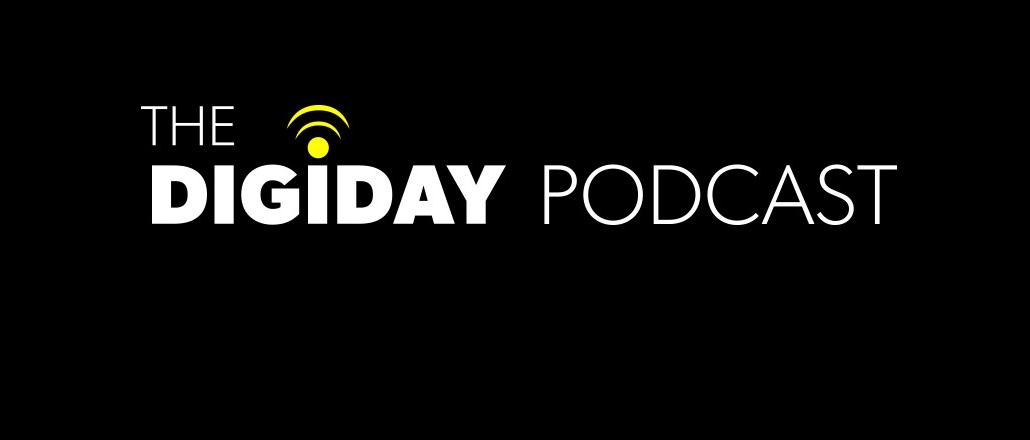David Droga: ‘We’ve moved from selling originality to selling processes’

The rise of digital has thrown the ad industry into a state of flux, and there is perhaps no place that is more keenly felt than in the agency creative department. For agency creatives, the new normal is a faster pace that is more about banner ads and pop-ups than longform ads masquerading as “films.”
For David Droga, creative chairman at independent agency Droga5, this has meant rejiggering the organization and processes of his agency to make sure it’s keeping up with client demands — while refusing to give in to doing advertising that’s just disruptive without being creative. He joined us on the Digiday Podcast this week to discuss that.
Some edited highlights:
There are a lot of Aussies in the business because they’re straightforward.
Droga is only one Australian among many in the business. Others include Sean Cummins, who recently moved stateside to start his own company in New York; and John Mescall, who left McCann Australia to come to the U.S. to become global ECD at McCann Erickson. One reason for their Stateside invasion, according to Droga, is that “Australians cut to the chase a lot, which in our industry is refreshing and there isn’t a lot of pomp and circumstance.”
Clients and agencies operate at markedly different speeds.
It’s pretty tough to be a client, and marketers are often frustrated with agency partners that don’t achieve the results they want. That’s one reason there has been a wave of marketers building up in-house agency capabilities. “It’s got to be pretty hard to be a client. A lot of the time you’re buying processes and it’s smoke and mirrors,” said Droga. One reason is how slow the agency world still moves: “No other industry works harder at being lazy than advertising. Clients want to get through the rhetoric and jazz hands and get to the thinking. And a lot of agencies aren’t set up to embrace the new world of the industry. They still make money by being traditional and moving slower.”
Agencies don’t know how to be creative.
It’s hard to find a creative pop-up ad. When asked, even Droga couldn’t think of one off the top of his head. For agencies, that has meant a race to innovate that uses the hot new platform just for the sake of it, said Droga. “Just because an option exists doesn’t mean you have to do it,” he said. And it’s more that the model itself, which rewards ads that disrupts the user experience, that is broken. “It’s so weird that we use this disruptive model. We have to think harder and better about what we do.”
The ad industry could learn a lot from entertainment.
Two years ago, Droga5 sold a 49 percent minority stake to Hollywood talent agency William Morris Endeavour, citing that there was a lot the two industries could learn from each other. “The entertainment industry definitely moves faster and is less strategic than us. They’re more fireworks and we’re more lighthouse,” said Droga. While the ad industry needs to worry more about the long-term view, there are things it could learn from entertainment about creativity and capturing people’s attention, he said.
Yes, advertising can save the world.
Droga5 has never shied away from politics: It did an ad for Obama’s re-election campaign, and teamed up with comedian Sarah Silverman in 2013 for a campaign to get people out to vote. Advertising can be brave, said Droga. “Everything is advertising. Not just selling soap. Candidates are out there selling message and personality and charisma. Advertising can get people to vote for the appropriate candidate — and we all know who she is. It’s not going to cure cancer, but maybe it can help someone trying to cure cancer,” he said.
Podcast produced and edited by: Tanya Dua
More in Marketing

YouTube’s upmarket TV push still runs on mid-funnel DNA
YouTube is balancing wanting to be premium TV, the short-form powerhouse and a creator economy engine all at once.

Digiday ranks the best and worst Super Bowl 2026 ads
Now that the dust has settled, it’s time to reflect on the best and worst commercials from Super Bowl 2026.

In the age of AI content, The Super Bowl felt old-fashioned
The Super Bowl is one of the last places where brands are reminded that cultural likeness is easy but shared experience is earned.






